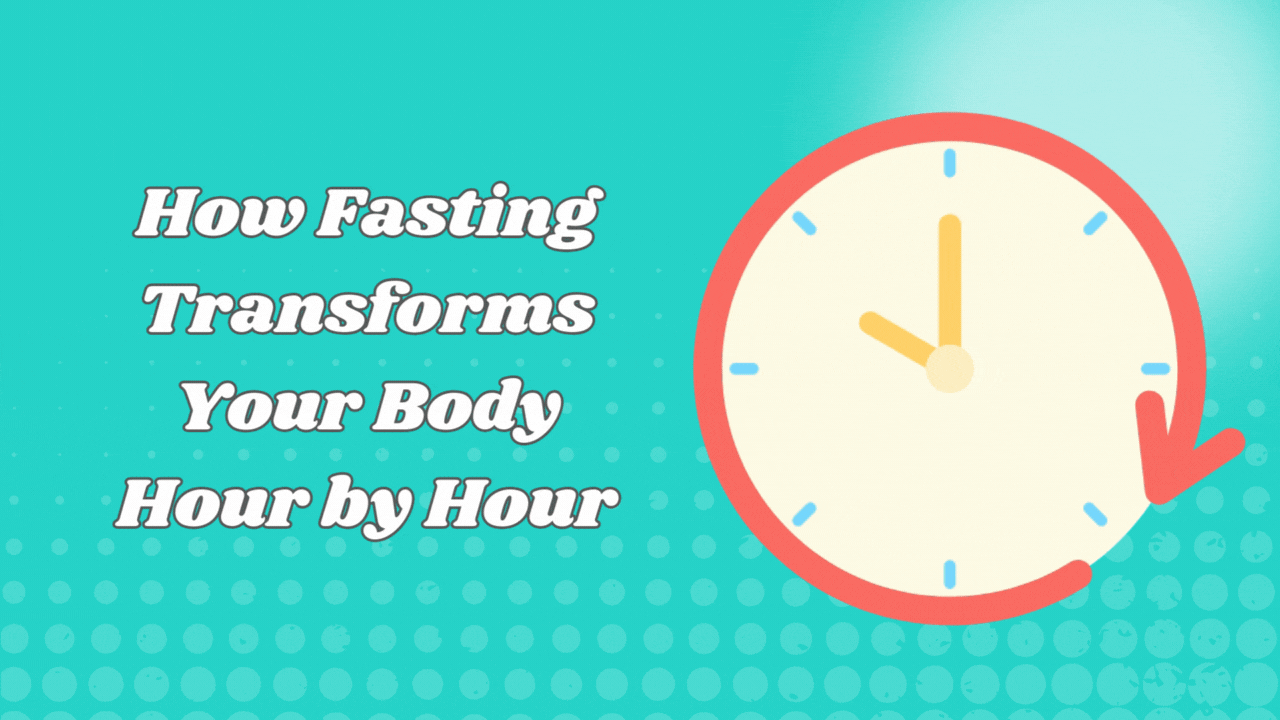How Fasting Transforms Your Body Hour by Hour

I started incorporating intermittent fasting into my lifestyle last year, and later, I even began experimenting with prolonged fasting. What really convinced me to take it further was when I learned about autophagy — a process that cleans out damaged cells and regenerates new ones. It fascinated me, especially after I found out that the Japanese scientist, Yoshinori Ohsumi, won the Nobel Prize in Physiology or Medicine in 2016 for his discoveries on autophagy. His research showed how this natural process can boost your health in ways we didn’t fully understand before. The idea that my body could essentially “clean house” at the cellular level was too intriguing not to try!
Now, don’t get me wrong, fasting isn’t always easy, but once I saw the benefits, I knew it was worth the effort. So, I wanted to break down what happens in your body during fasting, hour by hour, so you can understand what’s going on while you skip that second breakfast or push your fast a bit longer.
What is Autophagy?
Before diving into the breakdown, let’s touch on autophagy briefly. Autophagy is the body’s way of cleaning out damaged cells to make room for new, healthier ones. Think of it as your body’s natural recycling process — it helps with cell regeneration, reduces inflammation, and even plays a role in preventing certain diseases. It’s a big reason why longer fasting has gained so much popularity, especially among people looking to improve their health beyond weight loss.
The cool thing about autophagy is that it doesn’t kick in until you’ve been fasting for a while. This is where intermittent fasting and prolonged fasting really shine. By extending your fast, you’re allowing your body to tap into this self-cleaning mode, which can lead to better aging, improved immune function, and even clearer skin!
The Timed Breakdown of Fasting
Here’s what happens in your body as you progress through different stages of fasting. Each phase brings its own set of benefits.
0–12 Hours: Digesting and Stabilizing
At this stage, your body is still working on the food you’ve eaten. Insulin levels rise to process the sugars and nutrients in your meal, and your body stores the remaining energy as glycogen in your liver and muscles.
Key Benefits:
- Blood sugar regulation.
- Energy from recently consumed food.
- Nutrient absorption and digestion.
12–24 Hours: Glycogen Depletion and Fat Burning
After about 12 hours, your body has used up most of the glycogen (stored glucose) and begins to tap into fat stores for energy. This is where the magic begins for weight loss and fat burning, as your body switches from burning carbs to burning fat.
Key Benefits:
- Increased fat burning as glycogen depletes.
- Mental clarity begins as your body adjusts to burning fat.
- Insulin levels drop, helping with insulin sensitivity and lowering the risk of type 2 diabetes.
24 Hours: Ketosis and Autophagy Kick In
At the 24-hour mark, your body is now fully in ketosis. Ketosis is the state where your body starts using fat, converting it into ketones, which fuel your brain and body. This is also where autophagy starts, and your cells begin clearing out damaged components.
Key Benefits:
- Maximum fat burning.
- Autophagy begins — damaged cells are cleared out, helping with cellular repair.
- Boost in Human Growth Hormone (HGH), which aids in fat loss and muscle maintenance.
36–48 Hours: Deep Cellular Repair
Once you hit the 36-hour mark, autophagy is in full swing, and the benefits become even more significant. Your body is actively detoxing and repairing itself on a cellular level. This is also when you might start to feel a new sense of clarity and focus, as your body becomes efficient at using fat for energy.
Key Benefits:
- Enhanced autophagy for deep cellular repair.
- Human Growth Hormone levels peak, promoting muscle recovery and fat metabolism.
- Immune system starts regenerating, making new immune cells.
72 Hours: Immune System Reset
By 72 hours, your body undergoes something truly remarkable — a full immune system reboot. Your body breaks down old, damaged immune cells and starts generating new ones, making you more resilient to diseases. The longer fast also amplifies the benefits of autophagy and ketosis, leading to increased longevity and improved health outcomes.
Key Benefits:
- Maximum autophagy, allowing for complete cellular renewal.
- Immune system regeneration — your body creates new, stronger immune cells.
- Increased production of stem cells, which play a key role in healing and repair.
Now, let me be honest — fasting for 72 hours isn’t something you dive into right away, and it’s definitely not easy. But the good news is you don’t need to fast that long to reap the benefits. Even if you’re just doing intermittent fasting, like fasting for 16 hours and eating within an 8-hour window, you’ll still experience many of the positive effects, like improved fat burning, better focus, and reduced inflammation.
It’s all about what works best for you. Start small — maybe try a 12-16 hour fast and gradually work your way up. The important thing is to listen to your body and stay hydrated. Fasting has been a game-changer for me, and while it takes some getting used to, the benefits are more than worth it. So whether you’re aiming for a 16-hour fast or a 48-hour detox, know that your body is doing something incredible during each phase.
Give it a try and see how it makes you feel — just make sure you’ve tried shorter fasts before attempting longer ones!



